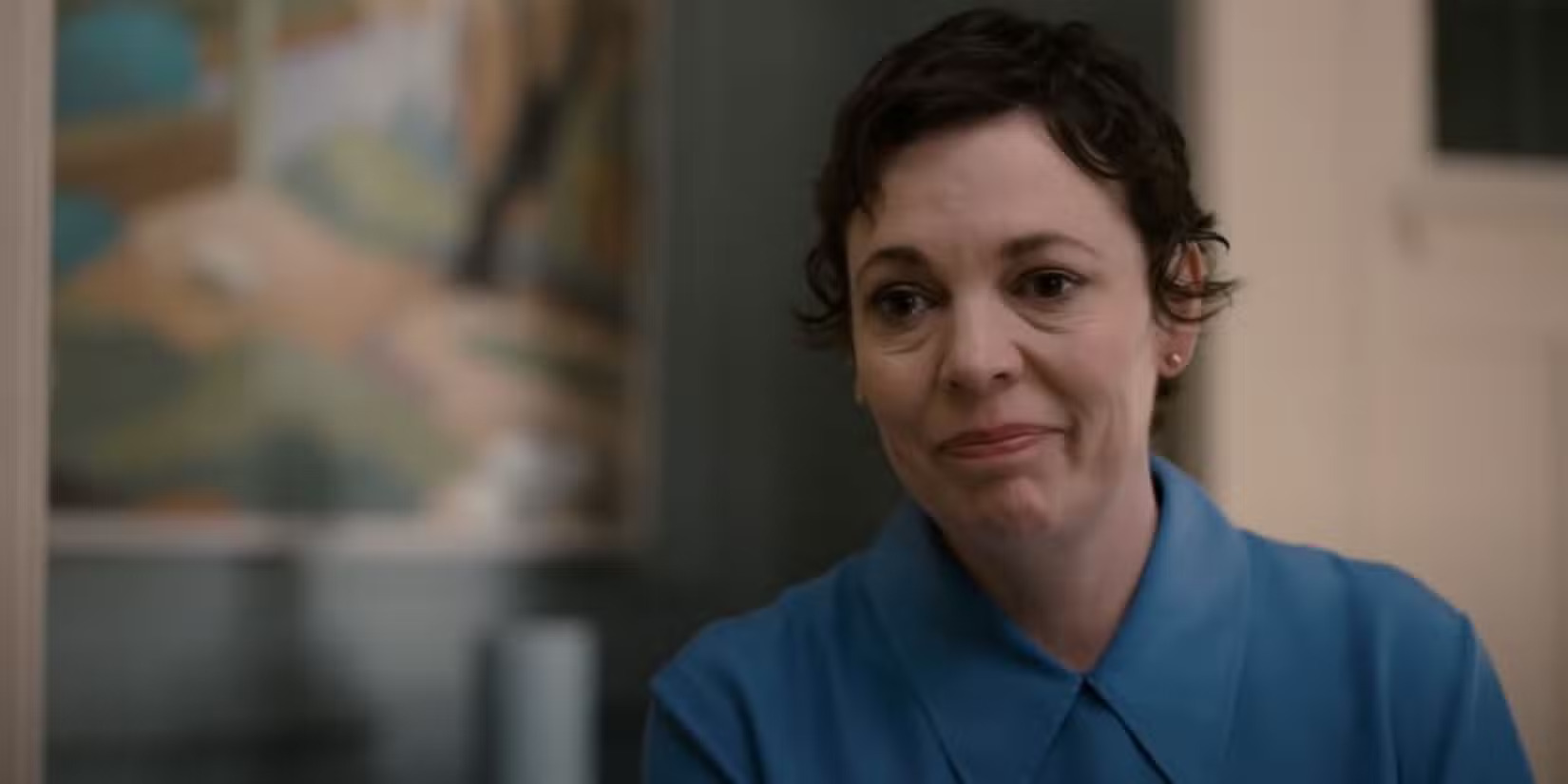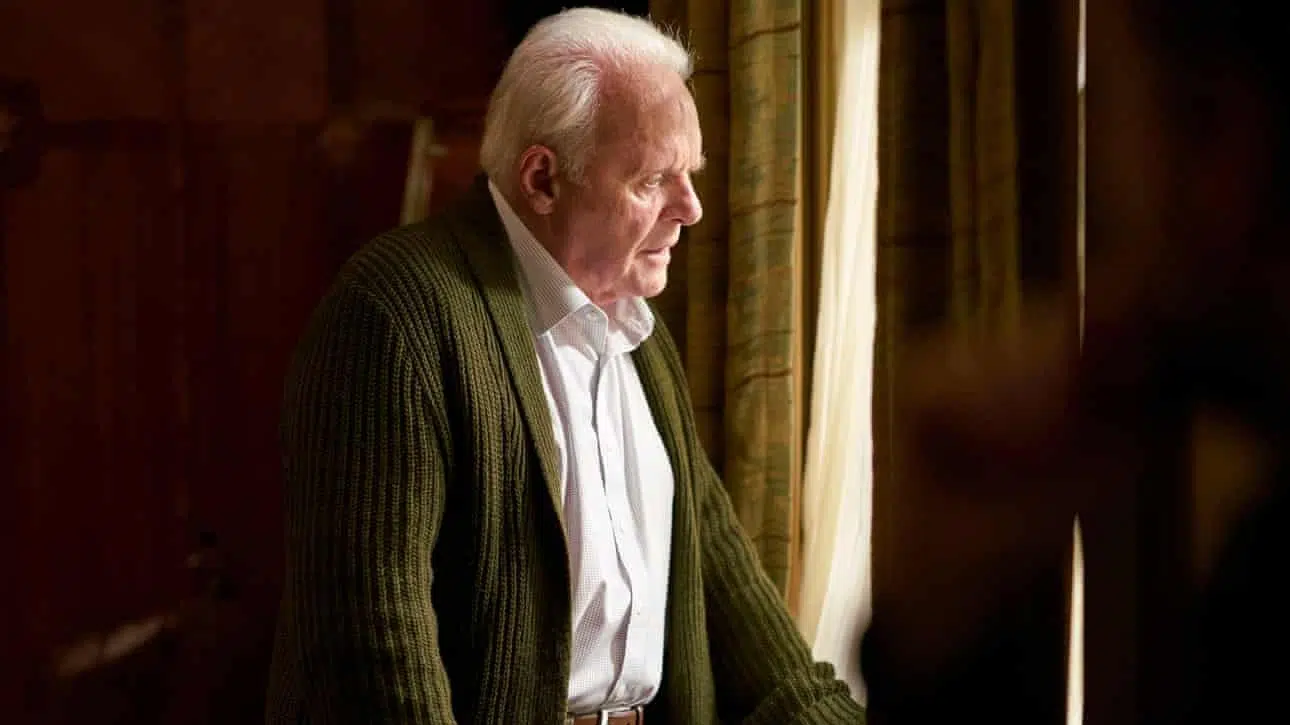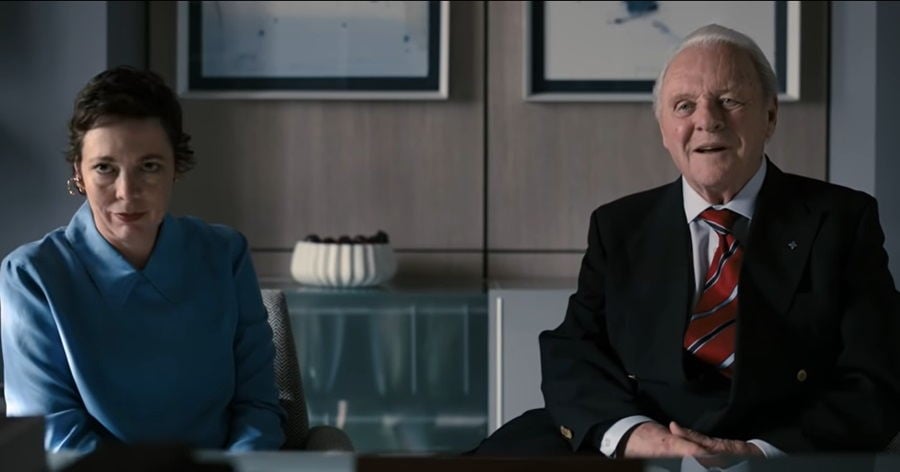Florian Zeller’s The Father is a 2020 drama that explores dementia through the eyes of Anthony, a man grappling with memory loss and confusion. The film garnered widespread attention not only for its storytelling but also for Anthony Hopkins’ towering performance, which won him the Best Actor Oscar in 2021. The movie is adapted from Zeller’s 2012 play Le Père, which was acclaimed in the theatre world and earned him the Molière Award for Best Play in 2014. Zeller wrote the lead role specifically for Hopkins, believing him to be the “greatest living actor,” a choice that became central to the film’s emotional impact.
The Father follows Anthony’s life as he struggles with dementia, with the story told almost entirely from his subjective point of view. His daughter Anne, played by Olivia Colman, seeks long-term care solutions for her increasingly confused father. The narrative structure mirrors the disorientation of dementia, presenting events and characters in ways that may not align with reality. This perspective creates a labyrinthine, sometimes disorienting experience for the audience, emphasizing the emotional and cognitive challenges faced by those living with memory loss.
The film’s ending is profoundly emotional and heartbreaking. Anthony’s flat, which has undergone several transformations throughout the story, finally becomes an assisted living facility. There, he is cared for by nurse Catherine and her assistant Bill. Zeller uses recurring actors in multiple roles to symbolize dementia’s effect on Anthony’s perception, as he mistakes Anne and her husband Paul for Catherine and Bill. By the final scene, Anthony’s grasp on reality has diminished so much that he can no longer differentiate his memories from imagination, culminating in a powerful emotional climax.

Anthony’s Emotional Struggles Reveal Dementia’s Impact On Memory, Family, And Personal Reality
In the climactic scene, Anthony recalls his mother and expresses the emotional weight of his condition to Catherine, admitting that he feels like he is “losing all his leaves.” Overwhelmed with tears, he becomes emotionally unmoored, and Catherine comforts him, assuring him that he will not remember the pain and that everything will be alright. The film ends with a camera shot of trees outside his window, whose leaves rustle in the wind, providing a bittersweet visual metaphor for life continuing despite Anthony’s fading awareness and suffering.
A key aspect of The Father is the uncertainty surrounding what is real and what exists solely in Anthony’s mind. The film presents multiple scenarios where he misremembers faces or events, blurring the lines between memory and imagination. Some incidents, such as being smothered by Anne or attacked by Paul, are likely imagined, while others reflect genuine conflict. These disorienting sequences allow the audience to empathize with Anthony’s vulnerability, highlighting the profound emotional and cognitive isolation caused by dementia.
Anthony’s relationships with his daughters are central to understanding his emotional state. Lucy, his younger daughter, appears to have suffered a fatal accident, while Anne struggles with caring for a father who is often harsh due to his dementia and underlying resentment. The film explores how dementia complicates familial bonds, as Anthony directs anger and grief toward those still living, while clinging to memories of those lost. These dynamics create moments of both heartbreak and insight into the human experience of loss and memory.

The Ending Reflects Dementia’s Cycles, Life’s Continuity, And Subtle Bittersweet Emotional Resonance
While the film deals with a terminal condition, it does not depict Anthony’s death explicitly. Instead, the ending emphasizes the cyclical and repetitive nature of dementia care, as he continues his routine under Catherine’s supervision. Zeller chooses a subtle approach, showing the outside world through the trees’ leaves rather than dramatizing death. This visual metaphor reflects the ongoing cycles of life and memory, leaving audiences with a nuanced, bittersweet reflection on aging and the passage of time.
The Father is a meditation on dementia as a “labyrinthian trip” through the mind. Zeller uses Anthony’s experiences to explore themes of vulnerability, memory, loss, and the fleeting nature of personal identity. Rather than offering a conventionally hopeful resolution, the film focuses on immediate moments of human experience, emphasizing how caregivers and loved ones provide comfort even when the sufferer cannot comprehend their surroundings. The rustling leaves symbolize life’s continuity and growth, offering a subtle optimism amid the tragedy.
Hopkins’ portrayal of Anthony is widely recognized as a key factor in the film’s success. His performance captures the terror, confusion, and heartbreak of dementia with nuance and emotional depth. Critics praised his ability to make the audience feel the character’s disorientation while maintaining empathy. The Academy Award for Best Actor, though controversial in the context of Chadwick Boseman’s posthumous nomination, affirmed the extraordinary impact of Hopkins’ work, particularly in the film’s emotionally charged ending scenes.
The Father received critical acclaim for its innovative storytelling, performances, and emotional resonance. Rotten Tomatoes rated it 98% among critics and 92% among audiences, reflecting broad appreciation. Viewers praised the film for capturing the emotional realities of dementia, with many noting that Hopkins’ performance was deeply moving. Directors and critics highlighted Zeller’s skillful adaptation of his own play, noting that the subjective perspective and haunting ending solidify the film as a modern classic. The movie stands as both a testament to Hopkins’ talent and a poignant exploration of aging, memory, and familial love.



